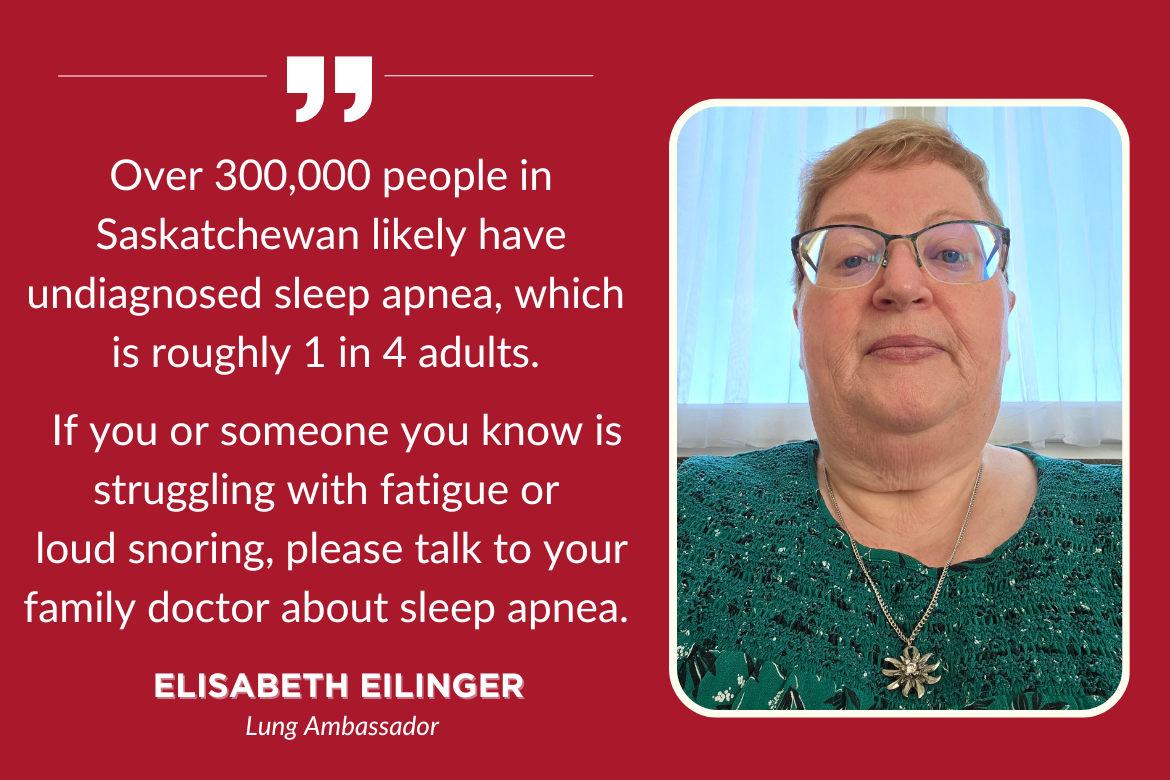I kept falling asleep in the middle of the afternoon, and I knew something wasn’t right.
How My Sleep Struggle Began
About 15 to 17 years ago, I went to my doctor because I was exhausted all the time. I remember stopping by my parents’ house on the weekends. I’d sit in the easy chair and if nobody spoke to me for 10 minutes, I would be fast asleep in the middle of the afternoon. Back then, I had a 9-to-5 job, but surprisingly, I never felt the need to sleep at work. I think I was just too busy! But just sitting in a quiet room, bam, I was asleep. And during the work week, I easily fell asleep in front of the TV every evening.
Finding Answers
When I went to see my family doctor, right away she said, “I think you might have sleep apnea”. It was recommended that I start with a simple test (this is no longer part of the testing process today). I picked up a small oxygen monitor, the kind you put on your finger overnight and took it back to the clinic the next morning. The technician told me, “You will not hear from us unless there is something urgent.” Two hours later, my phone rang. I said, “I did not think I would hear from you so soon.” He asked if the monitor had been on my finger the entire night. When I said yes, he told me, “I hate to say this, but the results were very bad. The specialist will call you within the hour, and you will be seeing him today.” My oxygen level had dropped to about 73 percent overnight. I later learned it should stay at a minimum of 93 to 95 percent. No wonder I felt so awful. When I did the full overnight test, they put me in the high risk category. My results were “off the charts horrible”, about 80 breathing pauses, or apneas, per hour.
Learning About Sleep Apnea
Before my diagnosis, I had only heard of sleep apnea from my uncle, who used a Continuous Positive Airway Pressure (CPAP) machine for treatment. I did not realize how serious it could be. The nurse at the sleep lab shared some insights that surprised me. She asked, “Are you so tired you cannot even think about what to eat, so you just go through the drive-through?” I thought, “That is exactly my life.” It was not until my doctor suggested I connect with Lung Saskatchewan that I began to understand more about sleep apnea. I signed up for the Lung Saskatchewan newsletter and attended the sleep apnea support meetings. When CPAP companies presented at the support meetings, I learned things I didn’t know before—like how often to replace parts—and that over 300,000 people in Saskatchewan likely have undiagnosed sleep apnea, which is roughly 1 in 4 adults. That is why I encourage people to join the Lung Saskatchewan Communities of Support and subscribe to their newsletter to learn more about lung health. You’ll find useful information, updates, and resources to support your lung health.
Living with Sleep Apnea
Today, I know you can live a good life with sleep apnea. There are small travel CPAP machines (used to keep your airway open while you sleep) you can take anywhere, and with a little planning, you can get distilled water for the humidifier wherever you go. Good sleep makes a huge difference. Before treatment, I could sleep for 14 hours and still feel useless. Now, six to eight hours of sleep is enough. If you or someone you know is struggling with fatigue or loud snoring, please talk to your family doctor about sleep apnea. If you are diagnosed, know that Lung Saskatchewan has support and programs to help. Thank you for supporting lung health in Saskatchewan.
Yours sincerely,
Elisabeth Eilinger
Sleep Apnea 101: What You Need to Know
Sleep apnea refers to pauses in breathing that happen during sleep, often lasting 10 seconds or more. These pauses, called apneas, can occur hundreds of times each night, disrupting sleep and lowering oxygen levels. Because of this, people with sleep apnea often wake up feeling unrested. If left untreated, sleep apnea keeps you from getting the restful sleep your body needs. People with untreated sleep apnea have an increased risk of car or work accidents, cardiovascular disease, high blood pressure or early death. More than 1 in 4 Canadian adults (26%) are at high risk of having or developing obstructive sleep apnea.
Signs and Symptoms of Sleep Apnea
The two main symptoms are:
- Excessive daytime sleepiness that cannot be explained by other causes.
- Loud snoring with pauses in breathing.
Other symptoms or conditions include: Waking with a dry mouth, morning headache, irritability, gasping or choking during sleep, lack of concentration when awake, high blood pressure, diabetes, heart, liver and kidney disease, depression, and impotence. Speak with your family doctor about your concerns and ask to be evaluated.

